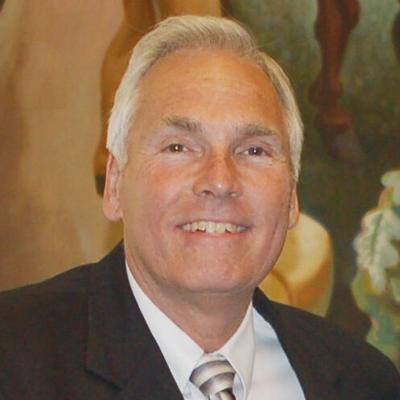State Rep. Phil Amato said the “Save MO Babies Act” he is sponsoring needs more work after he and the adoption attorney who wrote the bill were grilled about it during a Feb. 18 House committee hearing.
Amato, who represents District 113, which includes Arnold, Kimmswick and parts of Imperial and Barnhart, said some controversial language in the bill that called for the creation of a central registry of expectant mothers “at risk for seeking abortion services” has been removed.
Amato released a new draft of the bill on Feb. 20.
He said the bill now says “a directory of expectant mothers and fathers who have voluntarily decided to place their unborn babies for adoption” will be maintained.
Amato said along with clarifying that inclusion on the directory is voluntary, it was important to remove the reference of an “expecting mother who is at risk for seeking an abortion” from the bill.
“I wish we would not have included that language,” he said of the reference to abortion. “If I had it to do all over again, we would have taken more time and went over it a little bit more and got more eyes on it before I asked on a referral to a committee.
“The thought process was, ‘Let’s get this thing into a committee, and if we have to clean the bill up, we would do it in committee.’”
The first rendition of the bill drew criticism and concerrns about data privacy protections and what they said amounted to “government surveillance,” or tracking, of people who could seek an abortion.
Mallory Schwarz, executive director of Abortion Action Missouri, said in an email to the Leader that the bill presented to the House committee was similar to previous attempts by state officials to “track and surveil” pregnant woman in Missouri. She pointed to a former Department of Health and Senior Services director who in 2019 admitted to tracking menstrual cycles of Planned Parenthood patients.
“No pregnant person, no child is off the table for anti-abortion politicians to exploit in order to further their own power and control over our bodies, families and futures,” Schwarz said.
Amato said he hurried to file the bill in hopes it would be ready to go through committee and possibly be voted on by the House during the current session.
“We were in a hurry trying to get it there, and we knew we would get enough questions and answers to fix it before it got to the floor,” he said. “Am I sorry I filed it? Absolutely not. Am I sorry that a website took two or three sentences out and exploited it and got everyone excited, I am sorry about that. I wish they had called me and talked to me about it.
“I am still hopeful we can get this thing finalized and get it to the finish line.”
Amato said he is sponsoring the bill because his legislative assistant, Joyce Bush, adopted a child and told him about the expense.
“In Missouri, it could cost up to $50,000 to do an adoption,” he said. “I was talking to her one day and said that I understand adoptions are so hard, time consuming and so expensive. I said I would love to put a piece of legislation together to fix that.”
Amato said Bush then connected him with attorney Gerard Harms, who represented her during her adoption process. Harms worked with a group of other adoption attorneys to write the “Save MO Babies Act.”
If passed, the bill would create the Division of Maternal and Child Resources with the Department of Social Services. The new division would be responsible for “coordinating and applying for services for expecting mothers who wish to place their baby for adoption and placing such babies for adoption with fit and proper adoptive parents.”
The division’s registry would have expectant mothers who chose to be on it and prospective adoptive parents listed. That would allow a pregnant woman to connect with someone who wants to adopt a child to see if the woman believes the person would be a good fit to raise her baby.
Those seeking to adopt a baby and be placed on the registry would complete the necessary background checks and home visits to be declared fit to be placed on the registry and to adopt a child.
Harms described the registry to the committee as “e-Harmony for babies.”
“I don’t know if I would have used that terminology,” Amato said. “It kind of means that. If you are going to date somebody, you talk to them and converse before you ever agree to meet them for coffee or dinner. That is the thought process.”
A nonpartisan fiscal analysis of the measure said the proposed bill could cost the state more than $40,267,531 in 2026, $31,859,845 in 2027 and $32,215,075 in 2028.
Amato said he believes that fiscal analysis is too high, adding that he believes it would cost about $1.5 million to establish the new department.
He also said he believes the creation of the new department would streamline the adoption process and centralize resources available to mothers who want to place their child up for adoption, making the process less expensive.
Amato said by connecting a pregnant woman with a potential adoptive parent before lawyers are needed, the cost of adoptions should decrease.
“We will spend money on the front end, but on the back end, we will save a ton of money,” he said.
Amato also said one of the bill’s main goals is to make sure a pregnant woman is comfortable with a potential adoptive parent raising the child.
“For an expectant mother to make the decision to give her child up for adoption is going to be one of the most difficult decisions she will ever make,” he said. “She has to be absolutely comfortable with the person she is going to trust to raise her baby. I think the aim is to make the expectant mother comfortable that if she is talking to someone (from the registry) who will adopt her child, she is assured the person is qualified.”




